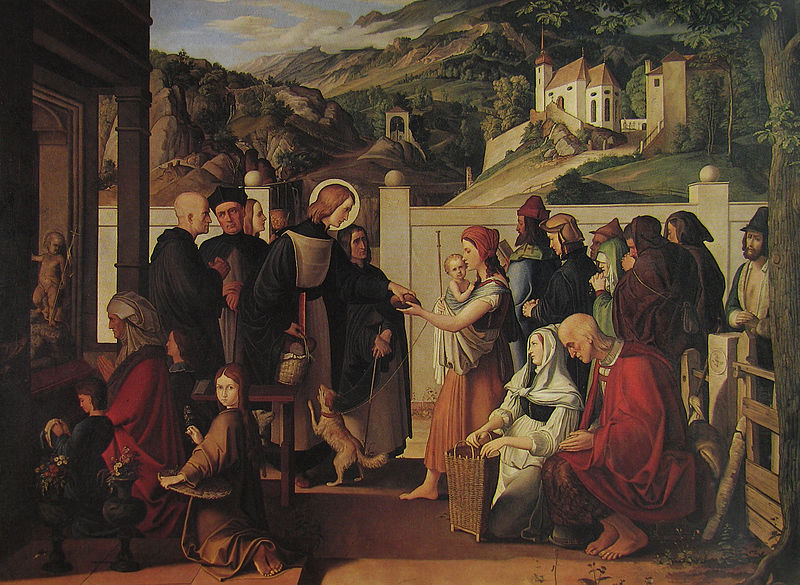
And Distribution Was Made Unto Everyone According to Their Need
““Rich countries aren’t developing poor countries; poor countries are effectively developing rich countries — and they have been since the late 15th century,” argues Hickel…In the book it is laid bare for all to see that underdevelopment in the Global South is not a natural condition, but a consequence of the way Western powers have organized the world economic system.”
In conversations with liberals (and when I use the term “liberal” here I mean anyone who is a conservative or a liberal; so in my U.S. context anyone who identifies as a conservative or a liberal are liberals because they both unquestioningly adhere to the political philosophy of liberalism and abide by economic liberalism) I find that disagreements come down to a few fundamental things, and one of the big ones is what W.E.B. Du Bois pinpointed in his book of essays and poems, Darkwater:
“Most men [sic] today can’t conceive of a freedom that does not involve somebody’s slavery. They do not want equality because the thrill of their happiness comes from having things that others have not.”
I think Du Bois succinctly and powerfully makes explicit here what people who cling to economic and political liberalism implicitly know: that despite what our liberal meritocratic impulses may tell us, for everyone to have what they need others simply cannot have too much. Now I’m not gonna lie, I like nice things as much as the next person. BUT, at the same time, I’ve also always sort of been content with what I have, i.e. I honestly don’t think my needs and wants are super extravagant (I partly have my parents to thank for this, they raised me to not want too much more than my fair share and taught me to appreciate what I have). And with regard to the nice things (nice to me anyway…) I have had/do have, I’ve never really felt guilty about having/owning such items (which I imagine might be the case with some people who have a lot of nice things and see others that have next to nothing) but, on the contrary, I have always just wondered (perhaps with child-like naivety) why everyone else can’t have semi-decent things too? Perhaps not coincidentally, the Christian ideal enacted by the early Church in Acts of the Apostles 4:32–35: 32 was always profoundly influential on me, even from a young age, and it has remained absolutely beautiful in my eyes:
“And the multitude of them that believed were of one heart and of one soul: neither said any of them that ought of the things which he possessed was his own; but they had all things common. 33 And with great power gave the apostles witness of the resurrection of the Lord Jesus: and great grace was upon them all. 34 Neither was there any among them that lacked: for as many as were possessors of lands or houses sold them, and brought the prices of the things that were sold, 35 And laid them down at the apostles’ feet: and distribution was made unto everyone according to their need.”
The picture being painted here by the early Church is not one of happiness and fulfillment coming from working hard and selfishly enjoying things you’ve competitively won and/or individualistically possessing something that someone else doesn’t have, but one of happiness and “great grace” coming when we make sacrifices to ensure that all of our friends (regardless of their stature, or degree of competitiveness) are actually doing ok too.
Building upon this then it’s no wonder that, years later, when I eventually encountered Marx’s famous slogan of “From each according to his ability, to each according to his needs” it struck a familiar chord with me (and this idea wasn’t original to Marx, by the way, many scholars do actually trace the origin of the phrase to the Book of Acts). Increasingly, I do think that when it comes to this question of needs vs. wants we can, as a society, honestly asses what we need and what we don’t need. For example I don’t know how, by any stretch of the imagination, someone could argue that privately owned jets, manors and yachts are examples of needs and not just extravagant wants.
Accordingly, along these lines, I read a fantastic article in Roar magazine recently (quoted above) that discusses how degrowth theorists argue that serious cutbacks and sacrifices are crucial to protect life on our planet. I agree with them. The author insightfully points out that we should perhaps view “countries like Costa Rica not as underdeveloped, but rather as appropriately developed. We should look at societies where people live long and happy lives at low levels of income and consumption not as backwaters that need to be developed according to Western models, but as exemplars of efficient living — and begin to call on rich countries to cut their excess consumption.” Rich Western countries have more than they need and, following the Christian edict again here, if they wish to remain influential and respected then perhaps the way to this end is to inhabit the counter-intuitive role as last. Then, if we’re lucky, we may still be able to play a small part in forging and maintaining the equitable balance of the kin-dom of heaven. Glory be to God.
…
Painting above: St. Roch distributing alms, Julius Schnorr von Carolsfeld

0 Comments